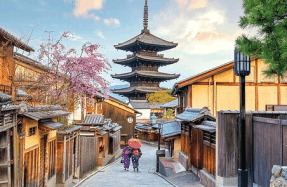The Water Element Across Cultures
Japanese beliefs
Japanese traditions use a set of elements called the godai, which translates to “five great”. These elements are earth, water, fire, wind/air, and void. The elements are derived from Indian Vastu shastra philosophy and Buddhist beliefs; in addition, the classical Chinese elements (wu xing) are also prominent in Japanese culture, especially to the influential Neo-Confucianists during the Edo period.
or , meaning water, represents fluidity, flowing, and the formless things in the world. Outside of rivers and lakes, plants are also categorised under , as they adapt to their environment, growing and changing according to the direction of, as are mental or emotional tendencies towards adaptation and change.
You’re reading a preview, subscribe to read more.
Start your free 30 days





